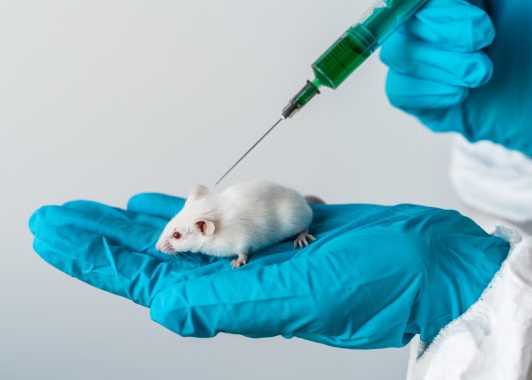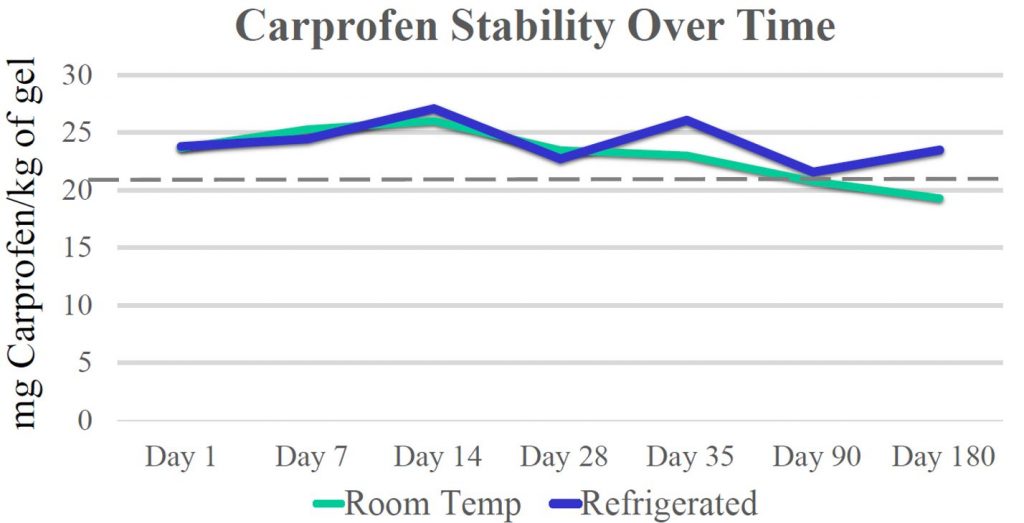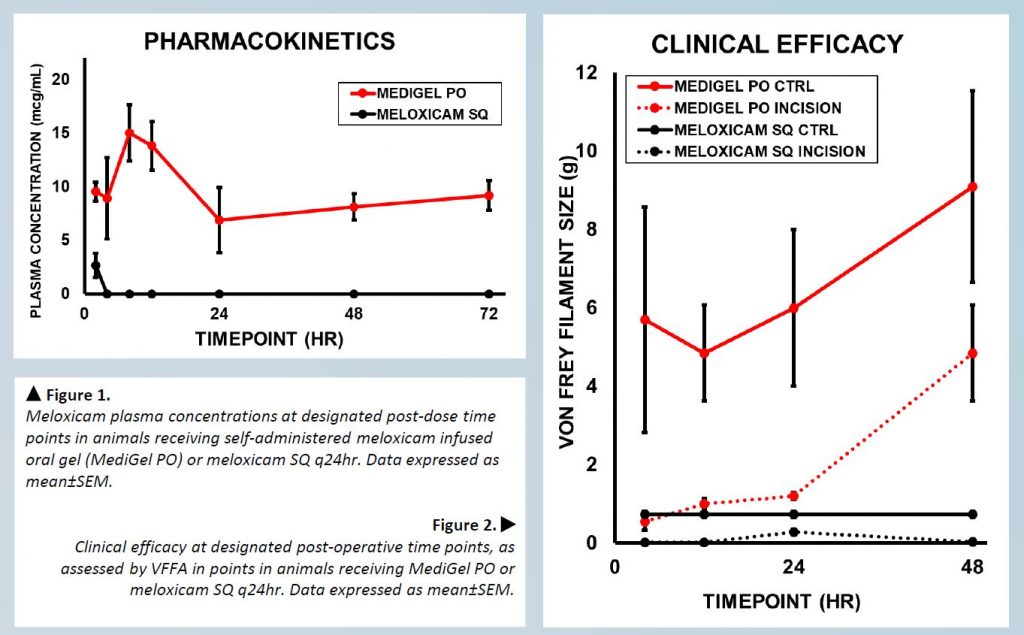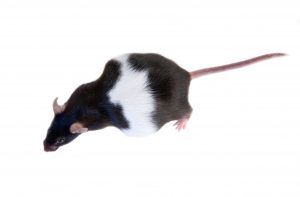

The Ethical Obligation of Lab Animal Pain Management at AALAS 2020
Mice feel pain. Rats feel pain. Nociceptive pathways and pain signaling mechanisms are highly conserved across mammalian species, and it is our ethical and regulatory obligation, as researchers, scientists, technicians, caretakers and veterinarians, to minimize that pain and optimize animal welfare. While the impact of the use of analgesics on study outcomes may be of concern, more attention should be given to the unalleviated pain, which, by leaving an animal suffering, increases results variability much more than analgesics.
For more on this topic, see our previous article: Pain is a Variable that Affects Data Reproducibility
This year at the AALAS 71st National Meeting, 2 posters featuring the efficiency of ClearH2O MediGels in drug delivery for pain management were presented, proving that self-administration of pain medication through oral delivery is an effective method for pain mitigation.
Carprofen is stable in MediGel® Sucralose
Carprofen is a nonsteroidal anti-inflammatory drug (NSAID) widely used for pain management in lab animals. However, repeated injections to maintain sufficient analgesia require daily restraint, leading to additional distress/discomfort on the recovering animal as well as spikes in blood plasma levels. In order to streamline a relatively easy pain management regimen through oral delivery, Dr James Finlay and his team at City of Hope, CA sought to make their own Carprofen gel cups with MediGel® Sucralose. They had already defined a working protocol in a previous study, by melting the gel in a 60C water bath for 15min, adding the drug with a syringe through the foil lid, mixing thoroughly by hand then by vortex, and finally letting the gel resolidify. This protocol has been widely adopted, and a video tutorial is available on our website for your convenience.
In this new study, Dr Finlay showed that carprofen stayed stable and sterile for 6 months, allowing for large batches to be made in advance and demonstrating the relative ease with which pain can be managed through oral delivery.

Meloxicam infused MediGel® achieves sustained plasma levels
Meloxicam is a non-steroidal anti-inflammatory drug (NSAID) as well, that is indicated for the treatment of mild to moderate pain, and is commonly used in veterinary and laboratory animal practice to control post-surgical pain. In their study, Dr Christina Winnicker and her team at Columbia University compared the pharmacokinetics and the efficacy of meloxicam via oral delivery or injection.
- While meloxicam was detected in the plasma 2 hours after the initial administration in both cases, Meloxicam SQ through injection failed to be detected after 8 hours, while plasma levels stayed constant for 72 hours with oral delivery through MediGel®.
- Clinical efficacy, measured with a standardized Von Frey Assay, consistently demonstrated a higher threshold to pain when animals were treated with Meloxicam infused MediGel® compared to slow release meloxicam injections.
These data showed that MediGel® achieves sustained plasma levels for the duration of administration, and provide sufficient alleviation of pain to the animals.

Both Carprofen and Meloxicam are efficient through MediGel®
NSAIDs such as Carprofen and Meloxicam are anti-inflammatory, antipyretic, and analgesic, and the most common analgesics used to alleviate pain in rodents after surgery. However, surgery is not the only circumstance when pain management is needed: animals undergoing minor procedures such as tail clipping or ear notching, as well as animals suffering from fight wounds or dermatitis can also benefit from those drugs. Delivery through MediGel® has gained popularity, as this method has been shown to be more efficient and less painful than injections.
Resources:
- To learn more, see our previous article:
MediGel® Sucralose is an Efficient Oral Delivery System for Pain Medication
and download the full studies here for Poster P9 and Poster P51 - To try our MediGels® products first hand, request a sample
- To learn more about ClearH2O’s involvement in AALAS 71st National Meeting,
refer to our AALAS 2020 article series:
Overcoming Lab Animal Husbandry Challenges at AALAS 2020
AALAS 2020 Technical Trade Presentation Preview : Breeding Support
Come Discover ClearH2O’s New Gel Diet Specifically Formulated for Zebrafish at AALAS 2020
AALAS 2020 Aftermath: Laboratory Animal Science on the Forefront
The Ethical Obligation of Lab Animal Pain Management at AALAS 2020
References:
(1) Clinical Management of Pain in Rodents, Foley et al., Comparative Medicine Dec 2019 (PMID: 31822323)
AALAS 2020 P9 – Carprofen Delivery Via Water-Based Gel : A Study To Determine Drug Homogeneity, Stability and Gel Sterility – James Finlay et al.
AALAS 2020 P51 – Pharmacokinetics and Assessment of Meloxicam-Infused Diet Gel in Comparison with Subcutaneously Injected Meloxicam Using an Incisional Pain Model in Mice – Yair Berger et al.

